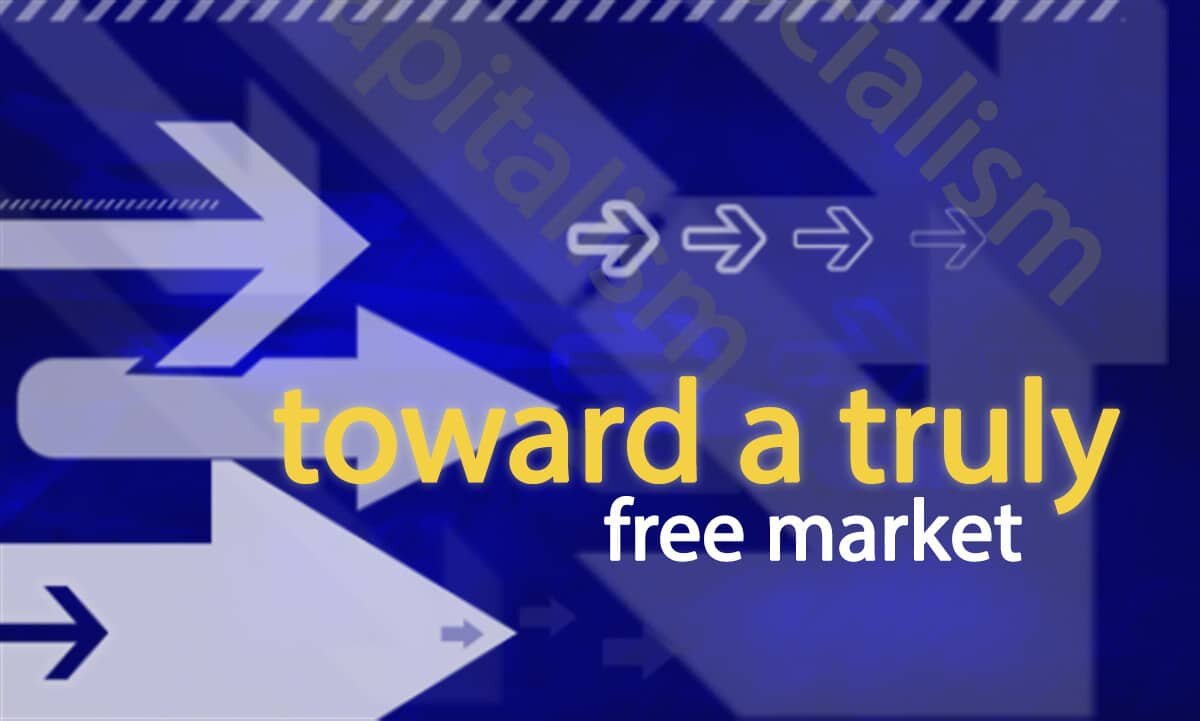Toward a Truly Free Market: A Review
From the beginning distributists have been the victors in the moral debate against socialism and capitalism. Rarely, however, have they presented a case as compelling from an economic standpoint. Endeavors to present the Distributist solution in economic terms have been, at best, incomplete and untried since Hilaire Belloc’s landmark book, An Essay on the Restoration of Property.That is, until now.John Médaille’s new book, Toward a Truly Free Market, is as refreshing as it is groundbreaking. Médaille traces the root causes of our economic crisis and explores the Distributist blueprint needed to regain what civilization has lost: the political economy.Consider this. More than ninety percent of economists failed to predict our recent economic crisis…and the crisis before that…and the crisis before that one. What’s more, few, if any authors, television personalities, or highly paid academics have responded to the crisis by asking the pertinent questions about the sources of our “boom and bust” economy, and even fewer are able or willing to reassess their basic assumptions about how our economy works or how it should move forward.Why?Since the age of the Enlightenment economists have suffered from “physics envy.” “What is” was divorced from “what ought to be.” What was once a humane science dependent on the moral law is now a concocted “physical” science, independent of ethics, dividing economic equity from economic equilibrium, to the detriment of both. And herein lies the problem. Médaille writes, “…the moral question and the 'economic' question are, in reality, one question.” Any attempt to separate them results in an unbalanced economy, which, “…will either fall to ruin, or to ruinous government attempts to redress the balance.”Indeed, as Professor Médaille reveals, the Enlightenment’s wall of separation of the “moral question and the economic question” compelled civilization to flirt with capitalism, socialism, Communism, Keynesianism, mercantilism, and even laissez-faire. And this last has, unfortunately, replaced the “free” in free market with excess and fiscal libertinism.Absent distributive justice, we cannot speak of supply and demand. Isolated from the external truths of the higher sciences and science is insufficient and disconnected from truth. “Liberate” our economy by shriveling away government—an objective the capitalist Friedrich von Hayek and communist Karl Marx both shared in common—and we generate the opposite effect: the growth of government. Indeed, this “free” market called capitalism is a system of privatized profits and socialized losses. Deregulatory and “free” market policies have led us to higher debt, more centralized economic power, and larger government.What about tax cuts? Surely tax cuts make good sense and result in growth.Tax cuts cannot solve our debt as government is forced to borrow money to reallocate the burden, which "represents an effective tax increase, since borrowing is taxing too, but a tax shifted on to the next generations.” Is the answer the flat tax? Fair tax? According to Médaille, these are impractical tax reforms.So what is the Distributist solution? What is a genuine free market?The author suggests certain steps are needed to achieve a free market. Corporate tax subsidies must be eradicated so that the collectivizing of production and the strong political power of corporations can be eliminated. The federal budget—which consumes approximately 20 percent of our Gross Domestic Product—will also have to be curbed and slashed and, most importantly, our economy must be transformed into a political arrangement of distributed ownership. Only a decentralized economy holds the key to a sane tax structure, material stability for the masses, and a legitimate free market.Toward a Truly Free Market is a meticulous analysis of our economic system, its crisis, a critique of capitalism and socialism, and a brilliant look at the ideas and economic foundations of the Distributism solution. With chapters dedicated to the fictitious commodities of money, labor, and land, the proper exercise of government, taxes and economic rent, and an entire chapter devoted to the real answer to health care, Médaille has written a masterful follow-up to his impressive The Vocation of Business. But perhaps the book’s “Building an Ownership Society” will be the most appetizing chapter for Distributists. This chapter includes the trade, agrarian, banking, and industrial reforms needed to rebuild the local economy and restore subsidiarity.John Médaille’s Toward a Truly Free Market is the book Distributists have been waiting for. The way to fix our economy begins with understanding our economy, and this book will be necessary reading for layman and academic alike. As satisfying a read as the author’s previous effort, this explicitly Distributist work is bound to present a challenge to skeptics who have doubted the viability of Distributism, educate those unfamiliar with it, and present a long-awaited opus for its supporters.Click here to order the book.

